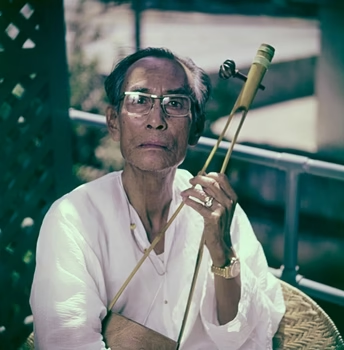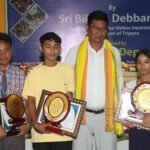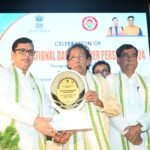A Tribute to Sachin Karta on His Birth Anniversary: The Maestro Who Blended Folk and Classical Music, Leaving an Everlasting Legacy in Indian Cinema
Written: Jishnu Dev Varma
Talking of the musicians from Tripura the name of Sachin Dev Barman or Sachin Karta (Karta was a term used for close members of the royal family) as he was called in Tripura was the most prominent. He was the youngest son of Maharajkumar Nawadwip Chandra Bahadur. Sachin Dev Barman revolutionized Hindi film music by adding to it the flavour of the folk music. There were many stories of him being exiled from Tripura due to his love for music, which were somewhat dubious. As one could see that the whole ruling family involved themselves actively in art, music and culture.
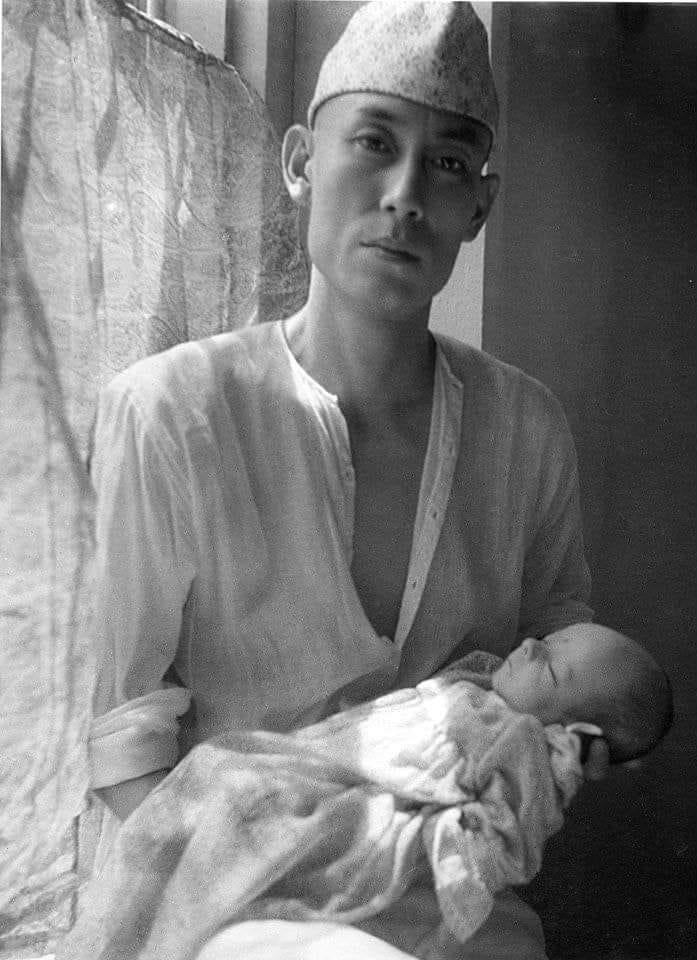
His father Maharajkumar Nawadwip Chandra was the son of Maharaja Ishan Chandra Manikya. He first became a minister at the time of Birendra Kishore and later the chairman of the council, which ruled the state when Birbikram was a minor and came to be known as the “Bura Mantri (Old Minister)” within the palace. On 31/1.1928 Maharaja Bir Bikram conferred upon him the personal title of Maha-Manyabar (Most Revered)”. The other person honoured with the same title on the same day was Maharajkumar Brajendra Kishore, who was also a prime minister at various times. Later I am told that the same honour was also bestowed on Rana Bodhjung.
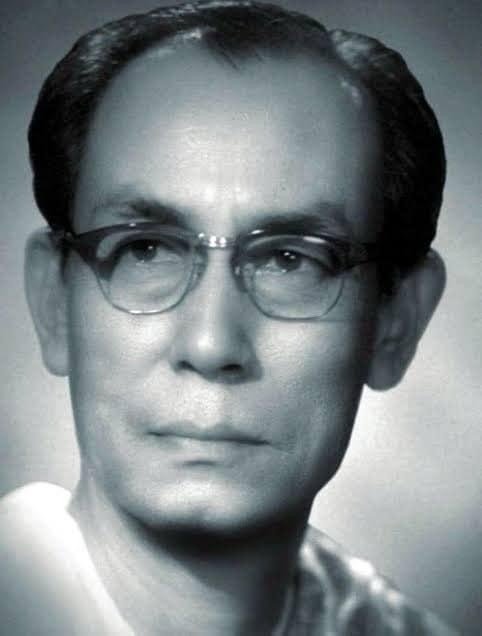
Nawadwip Chandra was a man of letters; his diary “Aaborjonar Jhuli (Garbage Bag), he gave an interesting insight into his times. Nawadwip Chandra wrote: “After the death of our father (MaharajaIshaan Chandra Manikya) our uncle Birchandra ascended the throne. He was a man of foresight and laid stress on modern education. He recruited English tutors for us and also took a keen interest in our education. Sometimes he would summon us and ask us questions on current affairs and award us for the correct answers”. He goes on to quote from a book named “Universal Music’ by an eminent scholar Sourindra Mohan Thakur “The present Maharaja of Hill Tipperra is well known for the encouragement he gives to the arts. He himself is a practising musician of no mean merit”.
Later on Nawadwip Chandra went on to fight a prolonged legal battle with Birchandra for the throne however, there seemed to be no personal bitterness on his part. In his diary “Aborjonar Jhuli” one found a feeling of dislike when he wrote about the Raj Guru Bipin Behari Goswami. According to Nawadwip Chandra it was under his influence Birchandra sidelined his true well-wishers within the family. The greatness of Nawadwip Chandra lay in surrendering his ego to return to serve his motherland in various capacities and reunite with the family. Despite the fact that the court case denied him the throne; he let the ugliness of the past bury itself. Nawadwip Chandra in fact had not succeeded in becoming a Maharaja but that did not deter him from serving his people. His line of the family moved on to greater fame. He died at Agartala, on5th September 1931.
Nawadwip Chandra’s eldest Kiran Karta was the Chief of the Tripura Rifles and was a recipient of the Military Cross, along with Arjun Kishore son of Maharaja Birendra Kishore was also an officer of the Tripura Rifles. Both of them died in a mishap during a military parade in Tripura. The other brother of S.D. Burman was Prafulla Karta , who was the military secretary to the Maharaja.
The Tripura Rifles; a state force raised by Birbikram made a remarkable contribution at the Aarakan Front during the Second World War. The Tripura Rifles won the first battle at the Kaladang River. Many of its officers were decorated for bravery. In appreciation of their valor, the then Commander in chief of the allied forces presented an inscribed canon to the Tripura Rifles.
While S. D.Burman was staying with his cousin, Brajendra Kishore , in what is now the Women’s College (the old house has been demolished); every morning a fakir by the name of Sahib Ali came and he listened to his songs of with rapt attention. The fakir sang of nature and her beauty while he sat captivated by this “earthy singer”; at times he jotted down the notations. The simple fakir was in a way a source of inspiration to the future legend. Sachin Karta took this ‘earthy music ‘ to heavenly heights’. Everyone in the family shared a close relation with him and many of his nephews and nieces affectionately called him ‘Ka”. He sang for them and even composed songs for some occasions. He composed the song “Aloo Chaya Dola……..”, which he first sang at a theme party by the same name. It was hosted by Birbikram just before the Second World War at the ‘Krishikhetra’ gardens; where the garden house ‘Malancha Niwas’ stands.
The Indian Music legend Sachin Dev Burman, Sachin Karta as he was called was a Tripuri by birth and actually a scion of the royal family. His father was in fact once a contender for the throne.He married Meera Devi, a Bengali lady from Commila who was his pupil. She worked with him as an assistant music director and composed music for several films. Sachin Dev Barman’s chief contribution was to globalise the folk with north eastern aesthetic sense and light classical music. He spent much of his younger days in Chakla Roshnabad (Comilla), which was the estate of Tripura.
There he heard the songs of the boatmen, the wandering minstrels and the fisherfolk that left a lasting impression in his heart. On his journey to fame in the Hindi film industry, he gave the world evergreen melodies that resonated with the music of these simple people.
As far as Sachin Karta and Tripura were concerned; the compulsory question of identity arose. Most of the world did not know that Sachin Dev Burman as a Tripuri. Others had gained at the loss of Tripuri identity. This was possibly due to his distancing himself from his land and his people. It also gave ample space to various people, who attributed a variety of reasons to romanticize this estrangement. Some went on to paint him in the colours of a “rebel prince” although no valid cause for rebellion could be made out. He achieved great heights in the world of music, the controversies ascribed to him vis a vis Tripura had no significance. He was born into the royal family of India’s oldest kingdom; a kingdom where music was the soul. It was once a passion to those who belonged to Tripura.
I had met him with my mother in Shillong after the great success of the music of the film ‘Aradhana’. Songs like ‘Roop Tera Mastana’ ‘Meri Swapno ki Rani’ and many more from that film are still evergreen hits today and sung very often by various singers. I sat and listened as he spoke to my mother, he was visiting his niece ( sister’s daughter) , whom we lovingly called Mui Tuti. Not many know that his sister was married to Raja of Jaintia Hills. The conversation was solely on Tripura, he was keen to know about the family and the changes that had taken place.Despite of being away for so long , he remembered things in such details. Their house was where Rabindra Satabarshiki Bhawan stands now.
His son Rahul, who was affectionately called Pancham after the fifth note of Indian music, was a child prodigy. Members of the family still recalled how he used to accompany his famous father on the tabla even at a tender age. Rahul grew up and became a legendary music director like his father. Many people told me that he became very emotional whenever the topic of his childhood days in Tripura came up. There was perhaps a longing for his homeland in him. He visited Agartala in the late 80’s and gave a performance; soon after Rahul passed away in Mumbai.
In a sense, it was the leadership within a family that kept it cohesive. It was possibly due to lack of this, the erstwhile ruling family as a whole somewhat disintegrated. Hence, it could not give him and many others the love and recognition that they looked for; from their land and their people.
No matter how large a tree was or how far and wide its branches spread the yearning to be ‘rooted’ remained. This father and son duo got accolades and appreciation from all corners; one could plausibly say that it was also a tribute to their roots. In some way, it gave recognition to all those who sang, painted and wrote; for the sheer joy the experience brought to them. The ‘unsung artistes’ of Tripura lived far away from fame in the anonymity of a remote kingdom; yet undaunted they filled it to the brim, with music and romance. That made Tripura what it was.
AGULI STAFF DESK





